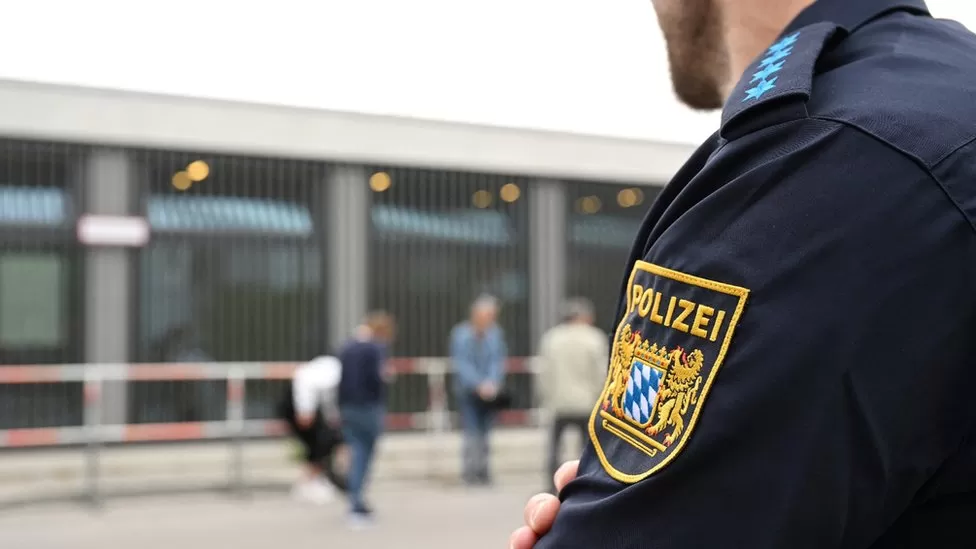Germany has banned the far-right sect Artgemeinschaft for spreading Nazi ideology to children and young people.

The country’s interior minister called the group “deeply racist and antisemitic” and said it was trying “to raise new enemies of the constitution”.
Artgemeinschaft used Nazi-era literature and cultural events to spread its ideology.
Police have raided dozens of homes and offices linked to the group in 12 German states.
“This is another hard blow against right-wing extremism and against the intellectual arsonists who continue to spread Nazi ideologies to this day,” German interior minister Nancy Faeser said.
Artgemeinschaft roughly translates to “racial community” and, according to the interior ministry, had about 150 members.
The ministry said the group was giving its members instructions about picking partners with a North or Central European background, in line with their ideology of “racial preservation”.
The sect also ran an online bookstore and regularly held cultural events that attracted up to several hundred people. It described itself as “Germany’s biggest pagan community”.
The authorities say the group used this cover of “pseudo-religious Germanic beliefs to spread their worldview which violates human dignity”.
The ban also includes the sect’s website, its publications and Familienwerk, another association connected with it.
Germany last week outlawed Hammerskins, another neo-Nazi group, which was known for its role in organising far-right concerts and selling racist music.
Hammerskins, founded in the US in the late 1980s, was the last major right-wing skinhead organisation in Germany after another group, Blood and Honour, had been banned in 2000.
It was heavily involved in setting up neo-Nazi music labels, selling antisemitic records and organising clandestine music events.
“Right-wing extremism has many faces,” Germany’s interior minister said, adding that Artgemeinschaft had acted differently than Hamerskins but was “no less dangerous”.
Artgemeinschaft is one of Germany’s oldest neo-Nazi groups. It played a key role in connecting different far-right and neo-Nazi groups in Germany, Ms Faeser said.
Stephan Ernst, the man who murdered prominent regional politician Walter Lübcke in 2019 in a shooting motivated by “racism and xenophobia”, was a member of the group, according to German intelligence.
German media also report members of the group had links with Ralf Wohlleben, a neo-Nazi who was convicted for supporting members of a notorious cell that carried out 10 racially motivated murders in Germany.
Germany’s domestic intelligence agency estimates there are 38,800 people active in the country’s right-wing extremist scene, with more than a third of them considered “potentially violent”.
NewLatter Application For Free






